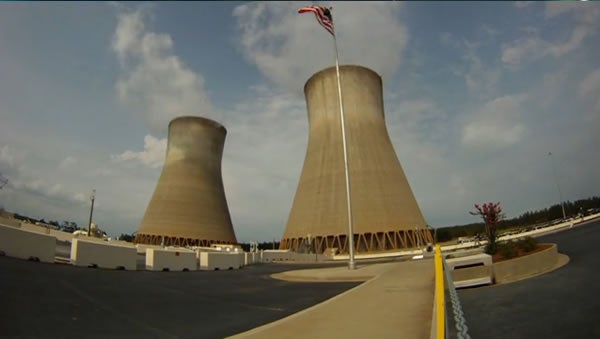Senators Ron Wyden (D–OR), Dianne Feinstein (D–CA), Lamar Alexander (R–TN), and Lisa Murkowski (R–AK) finally released a discussion draft of their much anticipated nuclear waste bill this morning. It essentially accepts the assumption that the federal government should be responsible for nuclear waste management and disposal and that waste producers should simply pay a fee to the government for that service.
Given this assumption, the legislation is reasonable. However, the quagmire that has become America’s system of nuclear waste management needs more than a simple renovation. The entire system needs reform, and the four Senators are missing an opportunity to provide it.
There are three fundamental problems with nuclear waste management in the United States:
1) No long-term geologic storage. Deep geologic storage (such as that proposed for Yucca Mountain, Nevada) provides a safe, long-term solution and thus is critical to any comprehensive nuclear waste management plan.
2) Waste producers bear no responsibility for waste management. This removes the incentive for those who financially depend on waste production, the nuclear utilities, to have any interest in how the waste is managed because the federal government is wholly responsible.
3) No specific price for specific services rendered. Accurate pricing is critical to any efficient marketplace. Prices provide suppliers and purchasers a critical data point to determine the attractiveness of a product or service and give potential competitors the information they need to introduce new alternatives.
The Senators’ plan does not adequately address any of these concerns and in some cases makes them worse.
First, it allows for a consolidated interim storage facility to be established prior to opening a permanent repository. The problem is that establishing an interim facility could diminish the likelihood of ever building the permanent repository. Since the repository is critical, siting and permitting it should be the government’s singular focus.
Second, by moving responsibility for waste management out of the Department of Energy (DOE) to a new organization, the Nuclear Waste Administration. The legislation creates the impression that the bureaucratic nightmare that held nuclear waste policy back could be avoided. But DOE was not the problem. The problem was subjecting an activity that should exist in the private sector to public-sector bureaucracy. Moving from one government bureaucracy to another does nothing to fix that.
And finally, although the legislation would allow the government easier access to funds to manage the waste, it does nothing to introduce the kinds of accurate pricing that would allow for rational decision making.
Thankfully, the Senators presented the draft as simply a discussion document and openly asked for feedback on how the legislation might be improved. Here are some ideas for them to consider:
- Transfer responsibility for waste management to waste producers. Based on the success of waste programs in countries such as Finland and France, the key to a successful waste management policy is for producers to be responsible for their own waste.
- Limit the scope of any new government entity. Such an entity’s scope should be limited to siting and permitting a new geologic repository and possibly providing nuclear waste management services so long as waste producers can seek other options.
- Give utilities the security of having at least one service provider while allowing competition. A primary concern for many waste producers with taking on the responsibility of waste management is that adequate services will not be available. One way around this problem is to obligate a new government entity to provide services but allow private entities to compete.
- Abolish the Nuclear Waste Fee and allow market-based pricing for waste management services. Market-based pricing would promote competition, innovation, and price reductions as consumers seek economical options for waste management and companies compete for that business.
The notion that politicians and bureaucrats can centrally plan something as complicated as nuclear waste management is simply outdated. Thanks to the private sector and the international marketplace, every other part of the nuclear industry has experienced great success. The time has come to trust it to bring that same success to nuclear waste management.
































